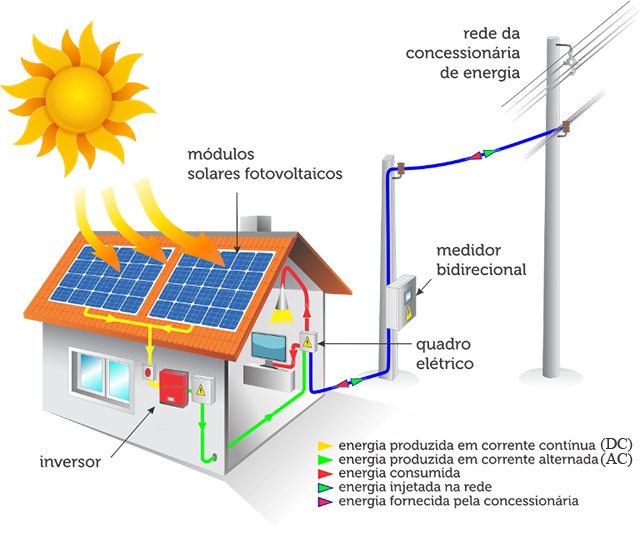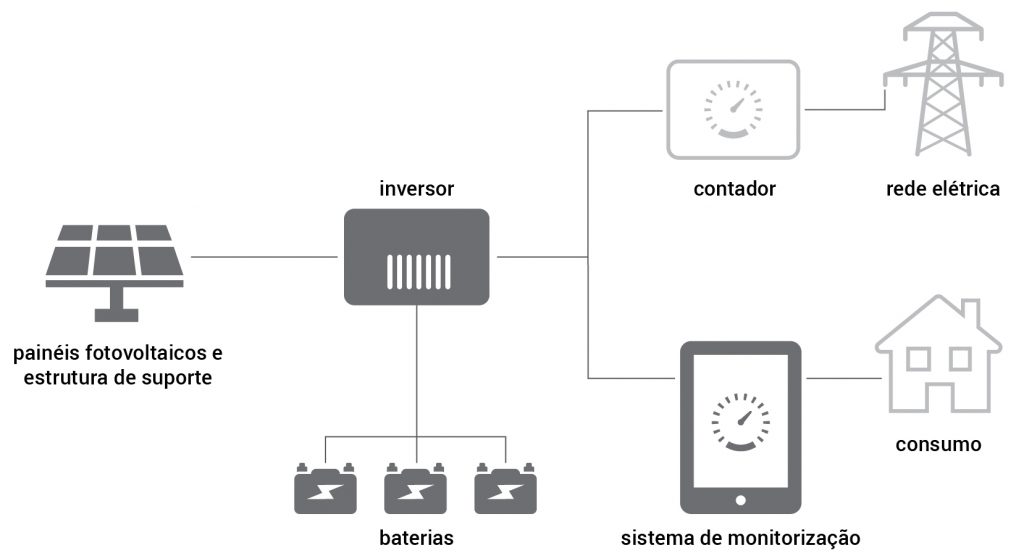Smart Solar Power
Self-consumption using photovoltaic solar panels allows you to produce and consume some of your own energy.
It is a method that involves harnessing the energy of the sun for the production of clean, sustainable, free and environmentally friendly energy.
With solar panels for self-consumption, greater efficiency is achieved when the system is sized according to the consumption profile of each dwelling.
Where there is a surplus of production, surplus energy may be injected into the RESP or sold by concluding a contract between the producer and the SRB or a free market trader.


How it works
Self-consumption consists of the installation of photovoltaic solar panels that produce a direct current (DC) proportional to the solar radiation that is on them. This current is driven to the inverter that transforms it into alternating current (AC), with frequency and voltage similar to that of the electrical network.
The electricity in AC produced by the system passes through the framework of consumption and protection, being distributed and consumed instantly in all points of consumption. In the case of storage systems, excess energy is stored in batteries and used at any time, even outside the solar period.
